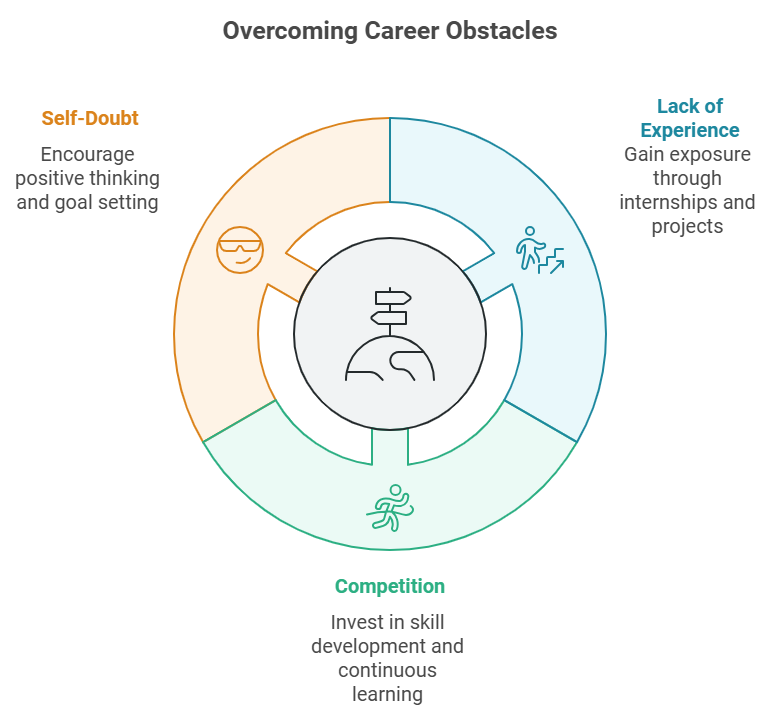
In the grand journey of professional development, one term you’ll frequently encounter is “career path”. This key concept, which we’ll explore in depth in this article, refers to a sequence of steps that an individual takes during their employment journey and significantly influences their growth and progress in the professional world.
We’ll delve into the importance of understanding of what a career path is, how it impacts professional development, and ways to help employees navigate their own path effectively. Buckle up, as we embark on this enlightening journey to decode the world of career paths.
Related articles:
Why Career Management is Crucial for your Company Success
5 Tips to Promote the Professional Growth of Your Employees
What is a Career Path?
A career path is a structured progression plan that an individual follows in their professional journey. It includes a series of positions, roles, or industries that an employee intends to pursue or transition into throughout their working life.
This pathway is often associated with gaining important skills, knowledge, and experiences required to achieve long-term career objectives and climb the professional ladder. A clearly defined career path can aid in understanding one’s career trajectory, identifying advancement opportunities, and setting and achieving professional goals.
Frequently Asked Questions about Career Paths
What is the importance of having one?
A career path plays a crucial role in an individual’s professional life. It provides a roadmap that guides one’s progression in their chosen profession, identifying potential opportunities for advancement and growth.
By understanding their career path, an individual can make strategic decisions about skill development, networking opportunities, and professional experiences that will enhance their employability and job satisfaction.
Furthermore, a clear career path can provide motivation and a sense of direction, helping individuals see the potential future rewards of their current efforts and maintain focus during challenging periods.
How does one decide on a career path?
Deciding on a career path often involves a combination of introspection, research, and practical experience. Start by identifying an employee’s interests, skills, values, and personality traits, and consider how these align with various career options.
They should conduct thorough research into industries and roles that interest them, looking at factors like job responsibilities, scope for growth, salary prospects, and industry trends. Networking with professionals, consulting professional resume writing service online CV writers, and gaining insights in their field of interest can also provide valuable insights.
In addition, gaining practical experience through internships, part-time jobs, or volunteering can help one explore potential career paths and understand what a particular role entails. Ultimately, the decision should be guided by personal goals and aspirations, and it’s important to remember that career paths are often non-linear and can evolve over time.
Can a career path change? If yes, how often does it happen?
Yes, a career path can certainly change and it happens more frequently than one might think. With the rapidly evolving job market and changing technology, new career avenues emerge and existing ones transform. Additionally, personal growth, experiences, and shifting interests can also lead to a career change.
While it varies widely between individuals, an average person could change careers 5 to 7 times during their working life. It’s important to remember that change, while sometimes intimidating, can open doors to new opportunities and experiences, and ongoing learning and adaptability are key to navigating a dynamic career landscape.
How does industry or job market trends influence a career?
Rapid advancements in technology, economic fluctuations, and changes in societal needs continuously shape and redefine job roles and industries.
For example, the rise of digital technology has spurred demand for roles in data science, cybersecurity, and artificial intelligence, which were not as prevalent a decade ago. Conversely, roles in industries that fail to adapt to technological advancements may become obsolete.
Therefore, keeping abreast of industry trends and market shifts is crucial in making informed career decisions. It allows individuals to anticipate changes, acquire relevant professional skills, and position themselves advantageously in the evolving job market.
Is it necessary to stick to one career path throughout one’s working life?
No, it is not necessary to stick to one career path throughout one’s working life. The concept of a linear career path is increasingly outdated in today’s dynamic job market. It is common for individuals to switch careers multiple times during their working lives as they discover new interests, acquire new skills like development for example, or respond to changing market trends.
Furthermore, diverse work experiences can enrich your skill set and perspectives, making you more adaptable and marketable. Career transitions, though challenging, can lead to personal growth and job satisfaction. If you’re exploring new professional directions or building a team to support those shifts, it’s worth knowing where to hire skilled teams in 2025 to stay ahead in a competitive market. It is essential, however, to make such transitions thoughtfully, considering your values, interests, and the potential impacts on your long-term career goals.
How do skills and educational qualifications factor into a career path?
Skills and educational qualifications play a significant role in shaping a career path. In navigating one’s career path, understanding the required skills and educational qualifications is crucial. For those considering a career in accounting, the road to earning your CPA credential offers a clear structured journey. From education requirements and passing the CPA exam, to gaining work experience and obtaining licensure, this pathway can significantly shape one’s professional development. Your academic qualifications can determine your eligibility for certain roles, especially in fields that require specialized knowledge or training.
Meanwhile, skills, both hard and soft, can set you apart from others in the job market. Hard skills, such as proficiency in a foreign language or coding, are often job-specific while soft skills, like communication and problem-solving, are transferable across industries.
Additionally, lifelong learning and upskilling have become increasingly important in today’s dynamic job market. By continually updating your skill set and knowledge, you can keep pace with industry changes and enhance your employability.
However, it’s important to remember that while skills and education are important, they are just one aspect of a career path. Factors such as personal interest, work-life balance, and career progression opportunities also play a crucial role in your career decisions.
What role do mentors and career counselors play in shaping a career path?
Mentors and career counselors play a pivotal role in shaping a career path. A mentor, often someone who is experienced in your field of interest, can provide valuable insights, share their experiences, and guide you through challenges you may face in your career. They can also help expand your professional network which can open up new job opportunities.
On the other hand, a career counselor helps you understand your skills, interests, and values, and align them with potential careers. They can provide practical advice on job search strategies, resume building, and interview techniques. In essence, mentors and career counselors serve as navigators in one’s career journey, helping them make informed decisions and progress towards their career goals.
What are some of the obstacles employees might face in their career path, and how can I help overcome them?
Every career path presents its own unique set of challenges. These might include lack of experience, competition, or even self-doubt and fear of failure. However, understanding these obstacles is the first step towards overcoming them.
- Lack of Experience: As a beginner in any field, the lack of experience can be a daunting barrier. However, it can be overcome by seeking internships, volunteering, or undertaking related projects that can enrich their portfolio and provide them with the necessary exposure and experience.
- Competition: In a saturated job market, standing out from the crowd can be a challenge. To overcome this, invest in your employees’ personal and professional development. Help them to acquire new skills, learn continuously, and become an expert in their field.
- Self-doubt and Fear of Failure: These psychological barriers can be some of the toughest to overcome. Encourage positive thinking, set achievable goals, and don’t compare their career path to others. Remember, failures are part of our growth, and they lead us to success.





